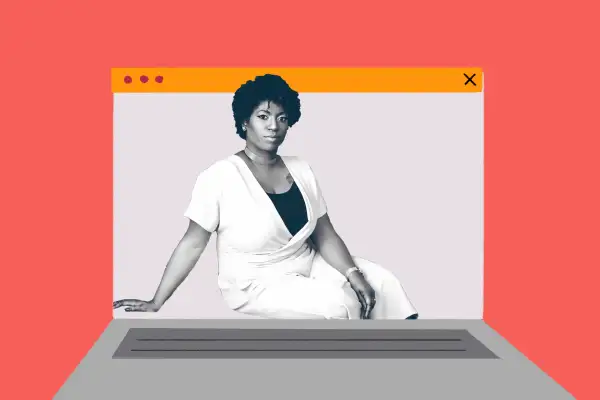If Coronavirus Moved Your Job Interview to Video, Here's How to Crush It

COVID-19 is changing the way we live and work.
As a career coach, I’ve been helping people ace their job search for more than five years. But right now, many of my clients applying and interviewing for jobs have had to completely change their approach.
With Coronavirus spreading, some companies are instituting a hiring freeze. But others, like Google and Amazon, are simply shifting to a virtual hiring process. If you’re looking for a new gig, most of your interviews will move to video, with the help of tech services like Google Hangouts, Skype, HireVue, and Zoom.
Virtual interviews can be intimidating. They require a higher level of intentionality, and the ability to zone into a conversation with ZERO distractions (During my recruiting days, If I had a nickel for every time a candidate thought I couldn’t hear their spouse shouting at the TV, or their kid begging for a snack, I’d be a millionaire).
Here are some tricks to help you be as prepared, and professional, as possible.
Lighting is key
Looking professional on camera is almost as important as what you say. So find the brightest area of your home, and make sure the light is facing you. In other words, don’t sit with your back against a window, or the only thing the interviewer will see is a fuzzy outline of your face.
If you don’t have many windows in your space, no worries! Put some lamps around you to brighten it up. And record a video beforehand to test how it looks.
What to wear (and not wear)
Video interviews are fun because you can literally wear sweats and dress up your top half (I’ve done it before, and I’m a job search “expert,” so don’t feel guilty.)
Still, you’ll need to choose your outfit wisely. Wear a slight pop of color, like a statement necklace or a tie, to stand out. Perhaps you have a “power color” that you wear that makes you feel confident.
Stay away from busy or distracting patterns. You want the focus to be on you and not what you’re wearing.
Be Enthusiastic
The most challenging part of a video call is the interviewer won't be able to feel your aura or energy in person, so you really have to give it all you’ve got through the camera.
What does that look like, exactly?
For starters, smile. Make sure to ask intentional questions that demonstrate your interest and knowledge of the company — questions about their work culture, job expectations, professional development opportunities and goals for the team are a great place to start. Like, “What should my areas of focus be in the first 30, 60 and 90 days?” And, “Based on my research I noticed your company is passionate about investing in and developing employees, can you tell me more about the training and mentorship opportunities available?”
Practicing eye contact is also key, which is difficult to do since you’re talking to a face on a screen. To create the perception of eye contact, look at the camera when speaking, not the face of the interviewer. If that feels unnatural, move your gaze between the screen and the camera every so often.
Here’s another tip: Using proper body language during an interview exudes confidence. So sit upright, and try not to fidget or cross your legs. Your frame will fit nicely in the camera this way.
Eliminate Distractions
Even the smallest distraction can throw a whole interview off, so you’ll need to eliminate these beforehand.
Make sure there are no pets, babies, or roommates around. Turn the television—and your phone—off. And if you do get interrupted by a car alarm or something else that’s out of your control, say "excuse me," wait for a few seconds for the noise to calm down, and get right back into it. Trust me, this will go over way smoother than trying to yell over the noise.
Bring some props
Have your interview questions written down in a notebook kept beside you.
You should also take notes during the interview, but ask the interviewer if it’s okay first, so they know that when you take a pause you’re not just being awkward.
Keep a printed copy of your resume beside you, too, and use it as a "cheat sheet" to explain your work in detail. Feel free to jot down some additional notes on your resume. These can include examples of what I call “hero stories” — situations that spell out your experience as a leader and problem solver.
Also, bring a bottle or glass of water, because you won't be able to get up once the interview starts. And if you’re like me, when you get nervous, you get hot.
Test the tech
Here’s the most important piece of advice I have. Check, double check and triple check your technology before the interview.
Trust me, using “I couldn’t get my video camera to work” as an excuse for being late to an interview never goes over well. Join the interview 10 minutes early to give yourself enough time to get adjusted, and to make sure your webcam and sound are good to go.
Headphones or earbuds may help with improving sound quality, if that’s an issue. And be sure to ask the interviewer for a number in case the wifi goes out or you get disconnected. Believe me, it happens.